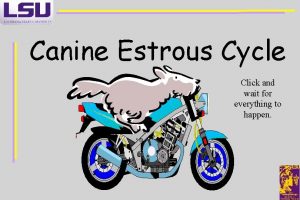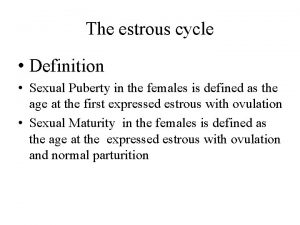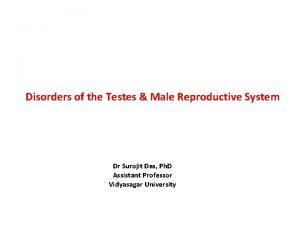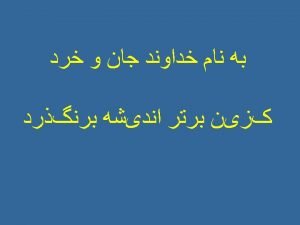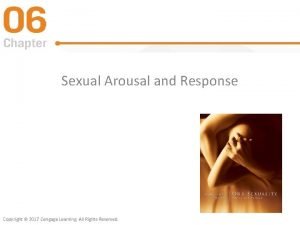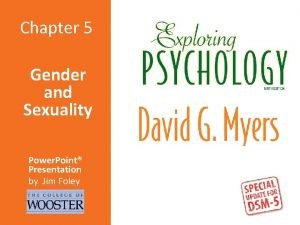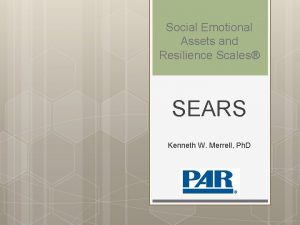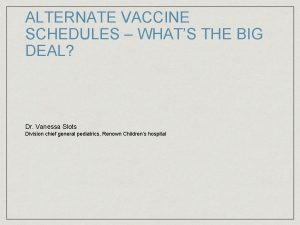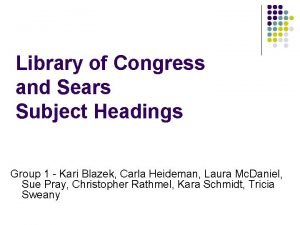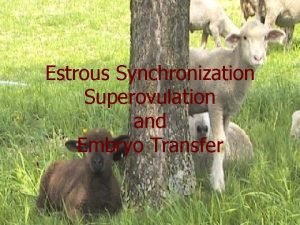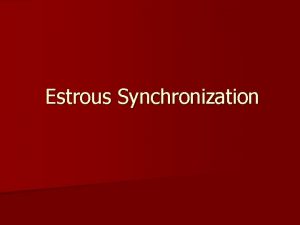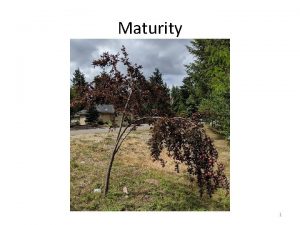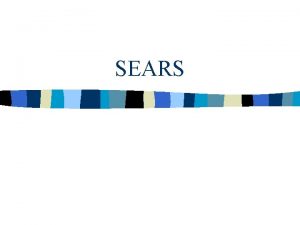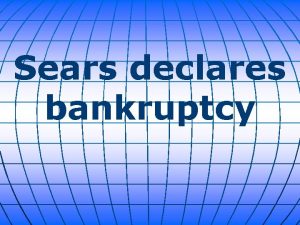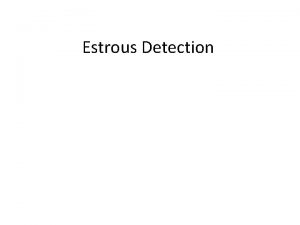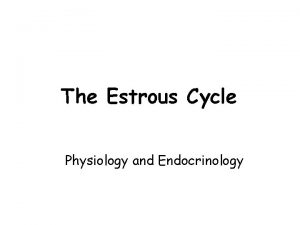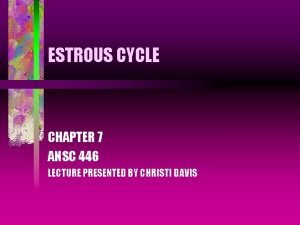Sexual Maturity and the Estrous Cycle Ms Sears













- Slides: 13

Sexual Maturity and the Estrous Cycle Ms. Sears

Sexual Maturity • Horses reach maturity between 12 to 18 months • They should be separated around this age to prevent accidental breeding

Sexual Maturity cont. • Waiting to breed horses until they are 3 yrs. old is recommended

Estrous Cycle • Estrous – Heat cycle • Estrus – signs of standing heat • Anestrus – not in heat (typically in winter)

Estrous Cycle cont. • 4 stages • Proestrus • Estrus • Metestrus • Diestrus

Proestrus • Follicles develop • Estrogen levels rise

Estrus • Estrogen levels are high • Females are ready to breed ( in standing heat) • Lasts 12 hrs to a few days

Metestrus • Estrogen decreases • Progesterone is produced

Diestrus • If pregnant : progesterone stays high • If not : progesterone decreases and prostaglandin increases

Estrus Detection • Change in behavior • Squeal, kick, bite, raised tail, squatting, and frequent urination. • Lasts 12 hrs. to a few days

Estrous Cycle • Horses are seasonal breeders. • Long day breeders • Mares ovulate every 21 days during the breeding season

Female Hormones • FSH – stimulates follicle • LH – Triggers ovulation • Estrogen – Prepares for pregnancy • Progesterone – maintains pregnancy • Prostaglandin – induces labor

Male Hormones • Testosterone – Causes male breeding behavior, promotes growth and the development and function of accessory sex glands • FSH – stimulates sperm production • LH – needed for completing sperm production
 Canine estrous cycle
Canine estrous cycle Subjective maturity indices
Subjective maturity indices Definition of sexual maturity
Definition of sexual maturity Tanner staging male
Tanner staging male Development
Development Sexual responce cycle
Sexual responce cycle Arousal cycle
Arousal cycle Sexual response cycle psychology definition
Sexual response cycle psychology definition Product in decline stage
Product in decline stage Sears rating scale
Sears rating scale Sears me.entiende
Sears me.entiende Dr sears delayed vaccine schedule 2021
Dr sears delayed vaccine schedule 2021 Sears seller portal
Sears seller portal Advantages of subject headings
Advantages of subject headings
